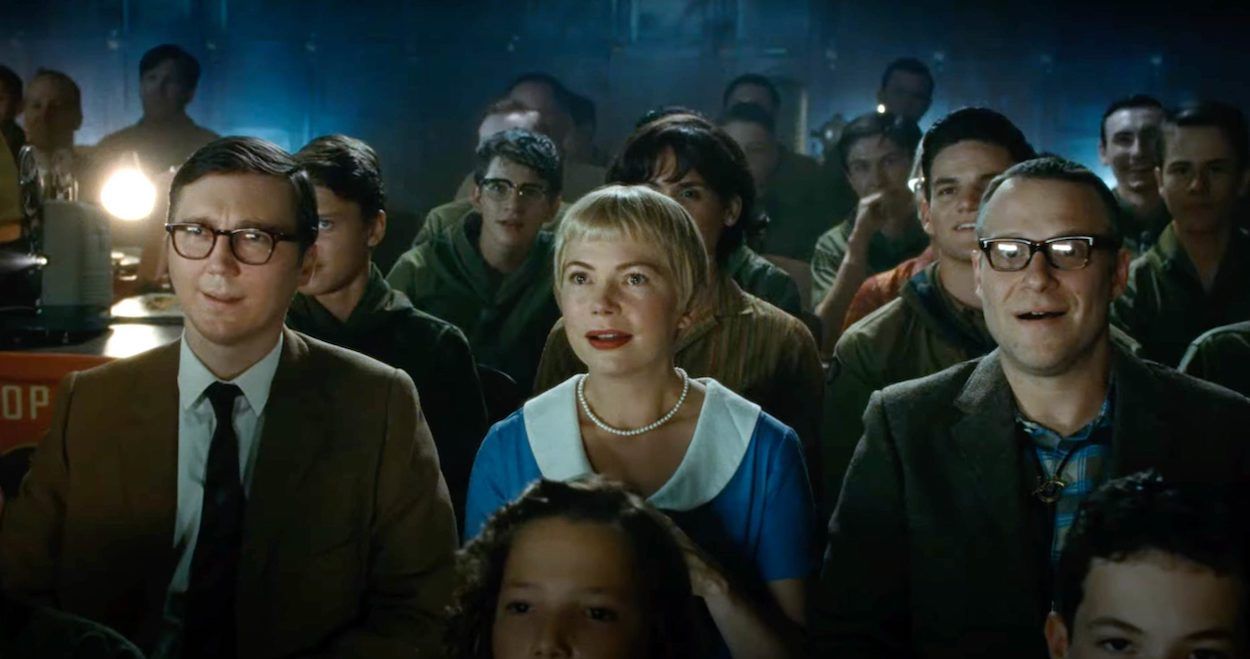These past two years will be remembered as a time when the filmmakers returned to their childhood and adolescence. Two weeks ago ‘Armageddon Time’ (2022), the new film by James Gray, was released. In it continues the author of ‘The night is ours’ the adventures and misadventures of a childthe youngest of a Jewish family, in Queens in the 1980s. That boy, even by another name, is the same Gray as a child. Brighter and more pop, the animated film ‘Apollo 10 1/2: A Space Childhood’ (2021) is also fueled by childhood memories of its author. The landing of man on the moon is the backdrop for a film in which Richard Linklater (“Childhood. Moments of a lifetime”) remembers his childhood in Houston, Texas in the late 1960s: the relationship with his family, the discovery of popular culture, his fascination with the special career.
Another director who chose this moment to remember the times gone by is Paul Thomas Anderson in ‘Liquorice Pizza’ (2021), approx the awakening to love (and adult life) of a teenager in the San Fernando Valley, Los Angeles, early 70s. For a simple matter like the fact that the dates don’t add up (Anderson was born in 1970 and the adventures of the protagonist of ‘Licorice Pizza’ take place in 1973), the film by the director of ‘The Invisible Thread’ is less autobiographical than the other two. Yet he feeds memories of the director’s childhood and adolescence, who also grew up in the San Fernando Valley, and his friend Gary Goetzman, a producer who, like the lead in Licorice Pizza, was a child actor. As an example of how personal the film is, it is worth mentioning a detail shared in the promotion: the family in the fiction of Alan Haim, co-star of the film, is his family in real life. Y her mother was Anderson’s art teacher (and crush) in college.
To these three films of an autobiographical nature we must add one of the most anticipated titles: ‘Los Fabelman’ (2022), theto the new movie Steven Spielberg, which will be released in Spain on February 10. It is true that the director’s childhood memories, especially family ones, creep into an important part of his filmography. But in “The Fabelmans” he directly recreates his childhood: from his parents’ divorce to the moment he discovered cinema.
They are four very different films, but in all of them there is nostalgia, the chronicle (more or less in the background) of specific moments in the history of the United States and the awakening to the life and art – own or foreign – of their authors . However, even more than these coincidences, what is interesting is why everyone has chosen this moment to remember their childhood and turn it into a film.
They are not the only ones. “Bard. False chronicle of few truths’ (2022) is not exactly the same thing: the autobiographical work of Alejandro G. Iñárritu covers a broader spectrum, essentially talking about identity and migration. But, even so, it also incorporates that journey into childhood and youth. And, outside the American panorama, ‘It was the hand of God’ (2021), the most earthly of the proposals mentioned so far, It is also inspired by the adolescence of its author, the Italian Paolo Sorrentino.
Related news
It’s impossible to know the reason for this collective and masculine melancholy. Maybe it’s just a matter of vanity. Maybe be one more stage of the era of nostalgia in which we live. Perhaps, although the genesis of some of these projects dates back many years, the experience of the pandemic has meant that all these filmmakers, feeling vulnerable, have used art to take stock of their lives in advance. Precocious because they are not farewell films, called to close or shore up the end of a career: with the exception of Steven Spielberg, the authors of these films are between 50 and 60 years old and a few years old.
Or perhaps, and there must be many other possible explanations, all have decided to go back to the past, the majority in very classic proposals and enemies of the urgency, in the face of vertigo due to the profound changes (and perhaps without return) that cinema has been experiencing in recent years. Although paradoxically some are conceived on platforms (‘Apollo 10 1/2, Bardo’ and ‘The Hand of God’), all of these films have a bit of cinema of resistance to uncertainty and change… And they all involve the (self)vindication of their authors at a time when the director’s name no longer even appears on the poster.

:format(jpg):quality(99):watermark(f.elconfidencial.com/file/bae/eea/fde/baeeeafde1b3229287b0c008f7602058.png,0,275,1)/f.elconfidencial.com/original/a45/af1/985/a45af1985c2f048a1eb10f2c96f2fec5.jpg)
